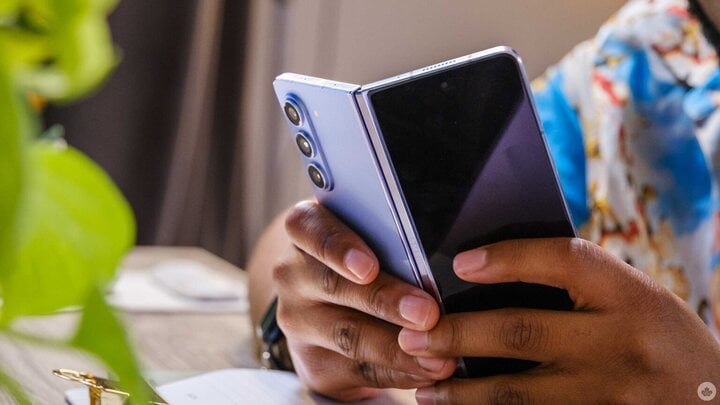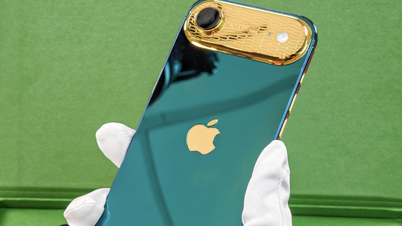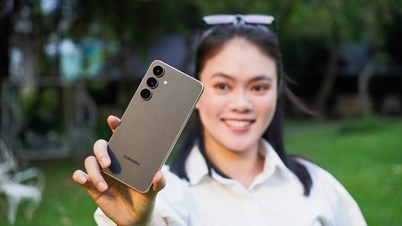For the world's leading smartphone manufacturers, foldable phones are seen as a hope as they can help revive the market, which has been gloomy for a long time. Smartphone giants such as Samsung, Motorola, and Huawei have all set strategic goals for future foldable phone product lines.
Samsung is still the leader in the foldable phone market, continuing to invest in both foldable smartphones and new flip-style devices. This year, the South Korean tech giant launched two flagship products: the Galaxy Z Fold 5 and Z Flip 5.

Although many smartphone manufacturers have invested in development, folding phones have only captured 1% of the market share after many years.
In a recent report, Samsung said that it will “continue to prioritize foldable display products for its premium smartphone lineup.” Currently, Samsung owns a 73% market share of foldable displays.
However, foldable smartphones only account for about 1% of the market. Estimates from statistics site Counterpoint Research suggest that foldable devices could surpass a third of all smartphones priced above $600 by 2027.
Other major brands are also aiming to offer foldable screen phones to attract interest in the smartphone market.
Motorola, Huawei and its Honor brand hope foldable phones can help boost sales in the market.
One major company that doesn’t seem to be interested in getting into the foldable market is Apple. Despite numerous rumors about prototyping a foldable iPhone, Apple seems to be resisting bringing a foldable smartphone to market. Instead, the company is likely developing a foldable iPad that could be released as early as this year.
Apple’s hesitation isn’t entirely unfounded, with the market being somewhat receptive to devices like the Galaxy Z series, Samsung’s Pixel Fold, and Motorola’s Raz+. However, analysts suggest that the return on investment for foldable phones is around 5 to 10 percent, which is higher than that of traditional smartphones. This could be due to durability, form factor, or other factors.
While manufacturers continue to invest in foldable devices, there seems to be an inherent need to reach the general consumer. The lack of widespread adoption is a challenge for smartphone manufacturers in the coming years. Furthermore, foldable phones may still be a direction for smart personal devices.
Tra Khanh
Source


![[Infographic] Notable numbers after 3 months of "reorganizing the country"](https://vphoto.vietnam.vn/thumb/1200x675/vietnam/resource/IMAGE/2025/10/4/ce8bb72c722348e09e942d04f0dd9729)




![[Photo] Students of Binh Minh Primary School enjoy the full moon festival, receiving the joys of childhood](https://vphoto.vietnam.vn/thumb/1200x675/vietnam/resource/IMAGE/2025/10/3/8cf8abef22fe4471be400a818912cb85)






























![[Photo] Prime Minister Pham Minh Chinh chairs meeting to deploy overcoming consequences of storm No. 10](https://vphoto.vietnam.vn/thumb/1200x675/vietnam/resource/IMAGE/2025/10/3/544f420dcc844463898fcbef46247d16)



































































Comment (0)